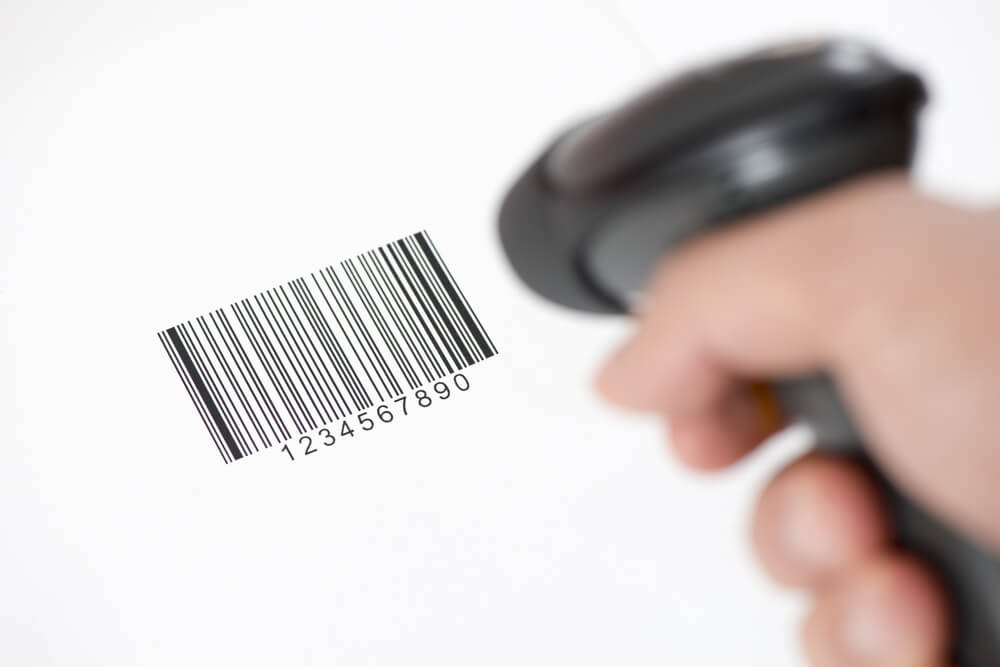Reliable Barcodes Scanners for Reducing Errors
Reliable Barcodes Scanners for Reducing Errors
Blog Article
Selecting the Right Barcode Scanner for Your Business Needs
Choosing the ideal barcode scanner for your company requires a nuanced understanding of your particular operational requirements and ecological conditions. Factors such as scanner type, rate, and compatibility with existing systems play a crucial function in identifying the ideal choice.
Understanding Barcode Scanner Types
When it concerns choosing a barcode scanner, understanding the numerous types available is critical for meeting specific business requirements. Barcode scanners can be categorized right into numerous types, each made for various applications and settings.
Portable scanners are the most typical, supplying portability and convenience of use, making them ideal for retail and inventory monitoring. They generally link using USB or Bluetooth, supplying flexibility in procedure. Fixed-mount scanners, on the various other hand, are developed for high-volume scanning applications, frequently located in assembly lines or check out counters. These scanners are mounted in a fixed position, allowing for quick scanning of multiple things in sequence.
One more type is the mobile computer system, which integrates scanning capacities with computing power. These gadgets are suitable for area operations or stockroom monitoring, making it possible for data collection and real-time supply tracking. Additionally, there are industrial scanners that are developed to stand up to severe atmospheres, such as severe temperatures or direct exposure to dirt and wetness.

Key Features to Take Into Consideration
What crucial attributes should services prioritize when picking a barcode scanner? Most importantly, scanning rate is critical, as faster scanners boost operational performance, especially in high-volume atmospheres. The scanner's capability to read various barcode formats is likewise vital; ensure it sustains preferred kinds like QR codes, UPC, and Code 128 to suit diverse supply things.
Toughness is one more crucial attribute, especially for organizations in tough setups. Look for models that are built to withstand drops, dirt, and dampness. Additionally, consider the connection choices available; whether you like USB, Bluetooth, or Wi-Fi, the best connection can enhance assimilation with existing systems.

Examining Your Service Setting
To efficiently pick a barcode scanner, businesses need to analyze their details operational environment. This assessment includes evaluating the physical layout of the work space, the nature of the items being scanned, and the common problems under which scanning happens. For instance, a retail setting may need handheld scanners that can swiftly process deals at the check out, while a stockroom setting could gain from ruggedized scanners made to endure harsher conditions.
Additionally, consider the volume of scanning called for. High-throughput atmospheres may require innovative scanning innovations, such as fixed-position scanners or mobile phones that can run successfully in fast-paced circumstances. The combination capabilities with existing supply administration systems additionally play an essential function; guarantee the selected scanner can effortlessly link with software platforms in operation.
Additionally, examine the possibility for growth and scalability. A scanner that satisfies present demands could not be sufficient as company expands. By thoroughly assessing these aspects, services can select a barcode scanner that not just satisfies immediate demands yet also explanation supports long-lasting functional effectiveness and versatility. This calculated approach ultimately adds to smoother processes and improved efficiency.
Budgeting for Your Scanner
Having evaluated the functional setting and determined the details requirements for a barcode scanner, the following action involves cautious budgeting to make sure a clever monetary investment. Developing a spending plan begins with establishing the total expenses related to the scanner, consisting of initial purchase rate, operational costs, and possible upkeep costs.
When selecting a barcode scanner, take into consideration the variety of available choices, from handheld tools to fixed-position scanners, as rates can differ significantly. It is vital to balance cost with capability; choosing a much more affordable version might cause boosted functional ineffectiveness if it does not fulfill your company demands.
Along with the hardware, consider costs connected to software program, training, and possible upgrades. While it might be appealing to minimize in advance expenditure, investing in a quality scanner that aligns with your operational needs can yield long-lasting cost savings via go to my site enhanced effectiveness and lowered downtime.
Finally, consider the complete expense of ownership, which includes the scanner's life expectancy and potential resale worth. By diligently intending your spending plan, you can make certain that your financial investment in a barcode scanner will enhance your operational performance and monetary performance.
Integration With Existing Systems
Integrating a barcode scanner with your existing systems is crucial for optimizing its effectiveness and ensuring smooth operations. barcodes scanners. A well-integrated scanner improves process efficiency, lowers errors, and speeds up information processing. When selecting a barcode scanner, think about compatibility with your existing software and equipment facilities, including your stock management systems, point-of-sale (POS) systems, and business source preparation (ERP) options
Examine whether the scanner utilizes conventional procedures such as USB, Bluetooth, or Wi-Fi, which can help with easy integration. Additionally, analyze whether the scanner's software program uses APIs or SDKs that enable personalization and assimilation with proprietary systems. This is particularly crucial for organizations with one-of-a-kind operational demands.
As your service expands, your systems should be able to fit extra scanners and manage raised information quantities without significant reconfiguration. Eventually, spending in a barcode scanner that perfectly incorporates with your existing systems will produce lasting benefits, enhancing accuracy, effectiveness, and general efficiency within your procedures.

Conclusion
In conclusion, choosing a proper barcode scanner requires a thorough analysis of different elements, consisting of scanner kinds, vital attributes, and the specific business his explanation atmosphere. The right barcode scanner serves as a vital tool in enhancing processes and helping with efficient stock management.
Report this page